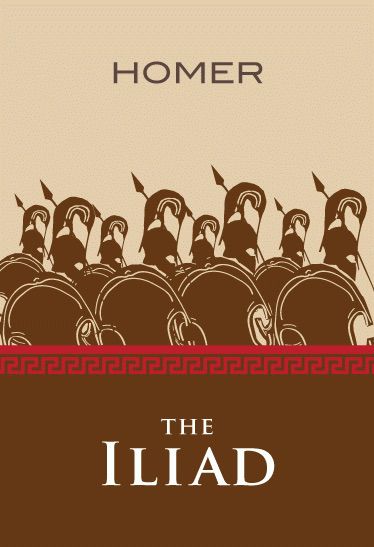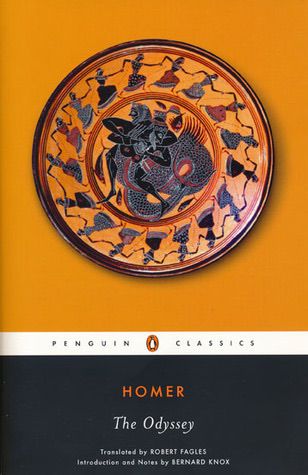Classical Fantasy

by millosophi
At the epicenter of every sub-genre is a single idea from which all its encompassing stories are born and ultimately linked. A literary umbilical chord, if you will. For the Classical Fantasy genre (defined as "a sub-genre based on Greek and Roman myths") that central idea, that unshakable foundation that has stood from Homer's 'Iliad' to Rick Riordan's 'Heroes of Olympus' series is humanity.
Archaeologists discover new fragments of Ancient Greece and Rome every year: bronze spear tips, leather greaves, clay mixing jars embellished with scenes of mirth and communion, the physical remains of broken empires, lost wars and the earliest signs of modern civilization. All tangible pieces of history, but so much Greek knowledge burned in Alexandria, the worms have eaten the philosophers and playwrights of antiquity, and who knows what has become of Caesar's dear diary? And yet, the richest vein of insight we have of those days, of a civilization lost to time, is in the most indestructible type of story: mythology.
The dynamics of Zeus' adultery, Ares and Athena's different ideologies on war, and the deep mistrust of magic associated with women tells us more about the psychology of the average Athenian or Spartan 2500+ years ago. The Romanization of those myths even more so.
The argument has been made that those early myths are the bedrock of the fantasy genre, and it is a compelling one to consider. 'The Iliad' is a war epic, motivated by a story of lost love and vengeance, the infighting of powerful men and the social consequences of petty kings. 'A Song of Ice and Fire', anyone?

The rivalry between Paris and Menelaus over the love of Helen is a melting pot of social science in itself, but the meat of the story comes from the most famous man in sports injuries: Achilles.
A demigod fated to die at the height of his powers. A tragic hero to his very marrow. Remember that word: hero. His nemesis within the context of 'The Iliad', the antagonist that kept him from his great physical goal, was a noble, family-loving prince by the name of Hector, son of Priam.
Though somewhat biased to Achilles, their subplot was told from both perspectives, that of the revered war hero come to sack the city of Troy, and the prince who stood on the ramparts of Troy and watched the Greek invaders line their ships along his father's shore. This dynamic exposed history's greatest flaw: the narrative belongs to the victor. After all, the anthologies of mankind were written by those who lived to tell their sides of the story.
The idea that evil is not an entity, but a byproduct of basic human motivation is central to classical fantasy. Achilles wants glory in war, and for that, Trojans must die. Hector wants to protect his home, and for that, Greeks must die.
Other themes include love, tragedy, our understanding of the divine, and the fatal flaws of man. Each deserves an essay of its own.
As do the characters that make up the mythology.
Demigods, tyrants, prophets, soldiers, kings, lovers, witches, explorers, architects, inventors, and hunters. Men and woman with large hearts or clever hands, in possession of great armies or quick wits, fated for greatness or great through toil. The sons and daughters of Destiny, that unknowable hand that makes kings of slaves and slaves of kings. If history is written by the winners, these are the people we naturally cheer on, because they have something, a central quality worth rooting for, a stamp that says 'I am worth my place in history'. Side note: not all of them are admirable. In classical fantasy, greatness is not goodness.
Of course, Greek and Roman writers weren't known for their optimism. The word 'tragedy' can be traced back to the Greek 'tragodia': a dramatic poem or play in formal language and having an unhappy resolution." Either that or 'tragiodos', which translates to 'goat-song' (the prize in Athenian play competitions was a live goat. A logistical nightmare for #TheWattys).

At the heart of tragedy is the fatal flaw, the chain around the ankle which keeps the hero from flying into heaven, or keeps Icarus climbing ever closer towards the sun. Generally, this flaw is as powerful as the hero's greatest strength. Athena, goddess of Strategic Warfare, the Arts and Craft, patron (or matron?) of Athens, wielder of the Aegis and most beloved of Zeus' daughters, is shackled by hubris. That says much of the Greeks who watched kings and tyrants alike fall in the name of pride. So far as the myths are concerned, it is yet to kill her. The same can not be said of the more mortal cast.
Achilles, the most decorated warrior in King Agamemnon's war council, was doomed by his heel - both physically and thematically the price he paid for his prowess. He had a choice: go home and live a long, quiet life, or die a war hero in Troy. He chose the latter. Odysseus, a man so cunning of wit, so beloved by Athena that she would intervene on his behalf in the climax of 'The Odyssey', got a good portion of his crew killed because he tricked a cyclops, and was too proud to run away without professing his name aloud for all to hear. Said cyclops called down a curse on his name and the rest his history, for his friends anyway.
Fatal flaws are essential to classical fantasy, because they're human deficiencies, and they're not always negative. Athena remarks that Percy Jackson's fatal flaw is his loyalty; given the choice between saving his friends and the world, he would always choose his friends. Given the choice, would we do any differently, would we hesitate?
Classical fantasy is more than a collection of campfire tales from antiquity. It is a message that we can pull from history to today and still have it resonate. It is a very flawed account of ourselves, a misted mirror glimpsed through the vivid human imagination, but as we've already established, the flaws are half the story. Even blockbuster films like '300' and 'Hercules' understand this. The other half comes from what we become despite these flaws: heroes or the also-rans of history. That's why I love it, because who doesn't love humanity?

Example of Classical Fantasy on Wattpad by millosophi
Synopsis:
Sixteen years after Madeley Enfin watched the King of Sparta put her father's farmlands to the torch, winning her hand, breaking the first unity treaty between Sparta and Athens, and inciting a war that would split the country down the middle, she has finally found peace in her husband's homeland. The fighting is all but over, her daughters are growing every day and, even as a Queen, Sparta seems to have finally forgotten her, if not yet forgiven.
Until an old cult starts murdering boys at their training camps.
The signs are worrying, worse still is the paranoia that has come upon her husband, the cold fear that has crept beneath his armour to touch his bones. If Sparta's history is anything to learn from, it will not be long before whomever is behind these murders turns their eyes towards the rest of Greece.
It is put to her to end the strife between Athens and Sparta, to negotiate an alliance she herself broke in her naivety. To do that, she must go to the heart of Athens, to Greystone, where the mortal children of Athena rule, and she must beg. She must bargain with the only thing she cannot bare to lose - her daughters. But when a Northern princess becomes her greatest opposition in securing the aid of Athens, Madeley is forced to confront every demon she wrought all those years ago, or doom Greece to the second war in her lifetime.
A Greek epic about kings, demigods, and motherhood, and the everlasting battle between family and the world.
Excerpt:
"Something bothers you, my lady," Sir Nestor said, puffing and panting on his little palfrey. "Might you confide in an old man who's bones ache from riding even this pony of a mount?"
Madeley pulled her hood up, part to blot out the midday sun, part to hide her face from her sworn knight's observations. "By Spartan law, we are about to commit a crime."
"Ah, but your lord husband is committing the crime, my lady, as are his guards." He sniffed, his nose tipped red despite the heat. "You and I are not Spartan, and we did not come to this place by our own wills."
"I did."
"Surrendering to King Maxim in the face of a certain siege is not free will, Lady Madeley."
"I did not surrender to him, Sir, I married him." She knew her tone was too sharp, but now was not the time to worry about men who wounded easily. "By rights, my daughters are Spartans. When I die my bones will not be buried beneath my father's halls, they will be buried here, in the catacombs where Maxim's forefathers lay. When I am named I am not Lady Madeley Oakenspoke of Evenfall, daughter to Pax Oakenspoke. I am Magna Madeley, Queen of Sparta. wife to Maxim Enfin. When this next year passes I will have spent seventeen years here, more than I have known in the Eastlands. Tell me, what part of my husband's sins are not my own, when I share so much of his life now?"

More on Ancient Classics:
Jill Dash - Everything you need to know to read Homer's "Odyssey"
https://youtu.be/8Z9FQxcCAZ0
Paul Cartledge - Why Homer Matters
https://youtu.be/NhXTEETdkmk
Bạn đang đọc truyện trên: AzTruyen.Top